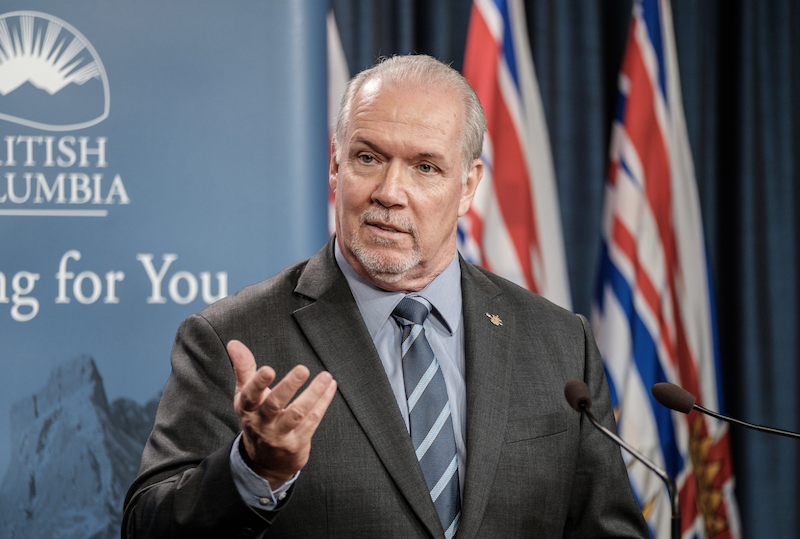News
BC premier passes on Indigenous cannabis event
Published on December 3, 2020 by David Wylie

BC Premier John Horgan chose not to attend a virtual roundtable this week with Indigenous leaders to talk about their place in the legal cannabis industry.
A consortium of chiefs from different First Nations invited Horgan and Public Safety Minister Mike Farnworth to Wednesday’s virtual event to discuss a path towards self-determination for First Nations through legal cannabis distribution.
Neither politician responded, despite multiple invitations by organizers.
The Indigenous group—which is called All Nations Chiefs, represented by Shxwa:y’ First Nation, Cheam First Nation, Soowahlie First Nation and Sq’éwlets First Nation—say they were “disheartened” by the snub.
The event was set up to discuss the delays and barriers impacting their involvement in Canada’s cannabis sector. The group says it wanted to secure government guidance and support to enter the industry as legal distributors. To that end, the communities drafted a licensing proposal for government feedback and direction.
“We needed government to come to the table to help us understand how to legally participate, so we brought the table to them with this event. We even set the table with our licensing proposal, but they still didn’t come,” says Darwin Douglas, councillor for Cheam First Nation and CEO of All Nations Cannabis.
“The time has come to move beyond nicely worded commitments and present real examples of government support for reconciliation.”
All Nations Chiefs say that while the NDP government has made commitments to equity, inclusion, and reconciliation in their platform, the lack of dialogue shows a disregard for working towards those goals.
“Today, we remain on the fringes of an industry that we should have the equal right to participate in,” says Douglas.
“All we want is to create the opportunity for our communities to legally engage in cannabis distribution. Cannabis is an economic opportunity for First Nations that we can’t afford to miss out on.”
In response, the Ministry of Public Safety sent a statement to the oz., saying “the province is committed to supporting Indigenous participation in the emerging legal cannabis industry and always willing to sit down with Indigenous Nations to talk about opportunities.”
“We recognize that some Indigenous Nations may have differing views with respect to jurisdictional responsibilities outlined in federal cannabis legislation, and are committed to understanding these perspectives,” said the statement.
The ministry says the Cannabis Control and Licencing Act includes provisions that allow the province to enter government-to-government agreements with Indigenous nations to address “unique, community-specific interests” regarding cannabis.
The province has entered into an agreement with the Williams Lake First Nation under Section 119—which allows First Nations to pursue their vision for participation in the cannabis industry, while upholding the public health and safety principles of federal and provincial cannabis laws.
“The province is actively working with a number of Nations that have expressed interest in similar agreements,” says the ministry.
All Nations Chiefs say they’ve filed an application for a Section 119 agreement under the Cannabis Control and Licensing Agreement Act in July, but had not received any timeline from the provincial government.
The group started a petition, so far signed by more than 2,500 people, asking for support of the Indigenous right to participate in the Canadian cannabis economy.
–
Updated Dec. 3 at 4 p.m. with comment from the Public Safety ministry.
Leave a comment on our Facebook page.
© Copyright 2020 Okanagan Z. | About the oz.
Report a Typo or Inaccuracy
We strive to avoid typos and inaccuracies. However, on occasion we make mistakes. We value your contributions and help in correcting them.